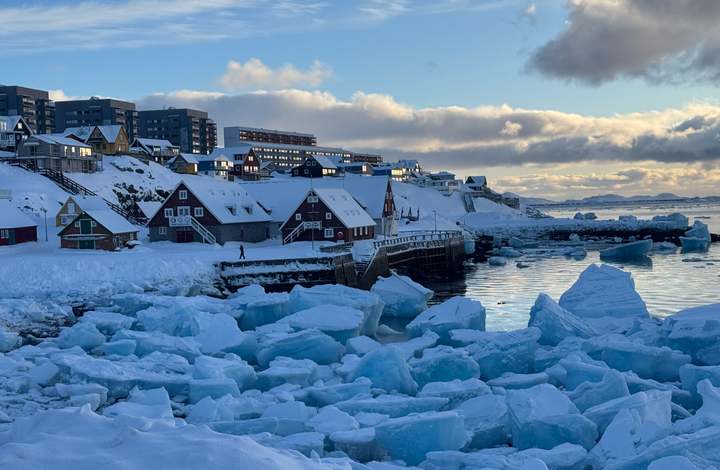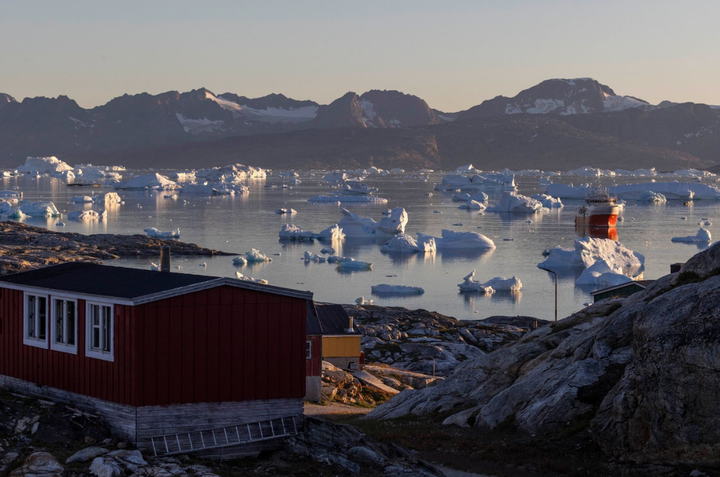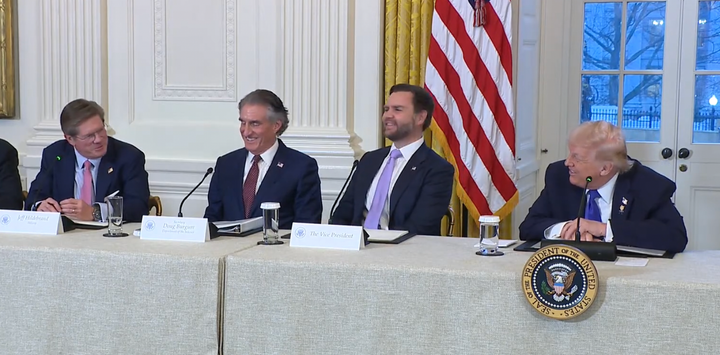Public media is in the crosshairs. How will Alaska’s congressional delegation vote?
Two of Alaska’s members of Congress have not directly said how they’d vote on an expected Trump proposal to defund the Corporation for Public Broadcasting.
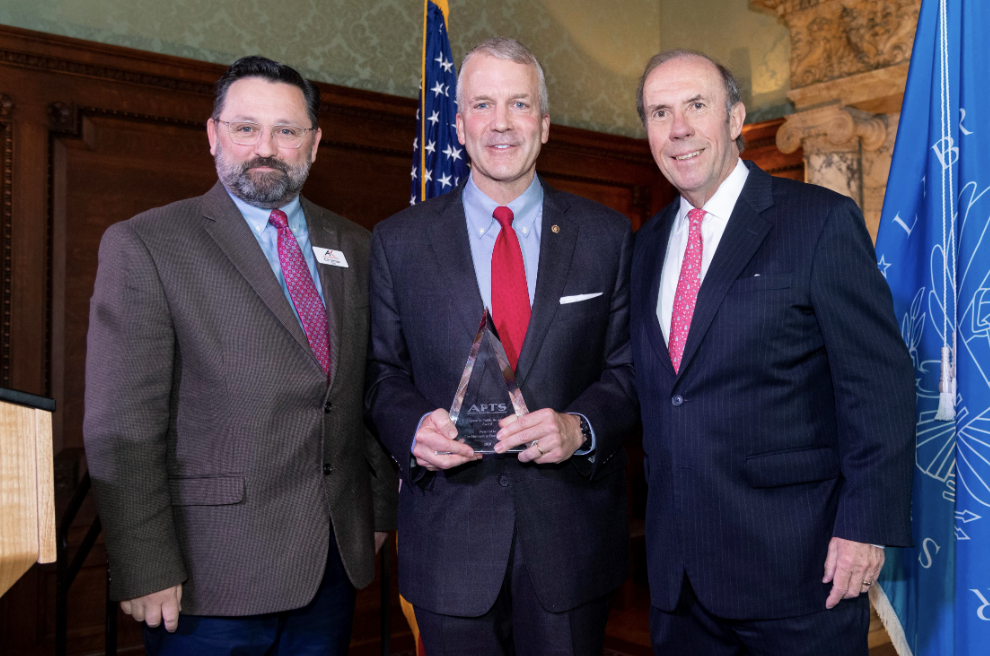
Should public media be spared the budget cutting axe of President Donald Trump and the congressional allies of the Department of Government Efficiency, or DOGE?
I’m not going to directly answer that question myself, because I’m not an unbiased observer: I’ve worked for years as a reporter and contractor for Alaska Public Media, Anchorage’s public radio and television station. I also have close friendships and working relationships with many of the reporters across the state whose jobs could be at stake.
I do, however, feel confident in saying that there’s another, related question that’s objectively interesting and less problematic for me to try to answer, which is: Will Alaska’s elected officials vote to buck Trump and preserve public media’s federal funding?
That question has become increasingly urgent in recent weeks with reports that the Trump administration plans to formally propose ending federal funding for the Corporation for Public Broadcasting, or CPB.
That nonprofit organization, in turn, grants money to both NPR and PBS, as well as to stations across the country — including more than 20 in Alaska, from Utqiagvik on the North Slope to Ketchikan near the Canadian boarder.
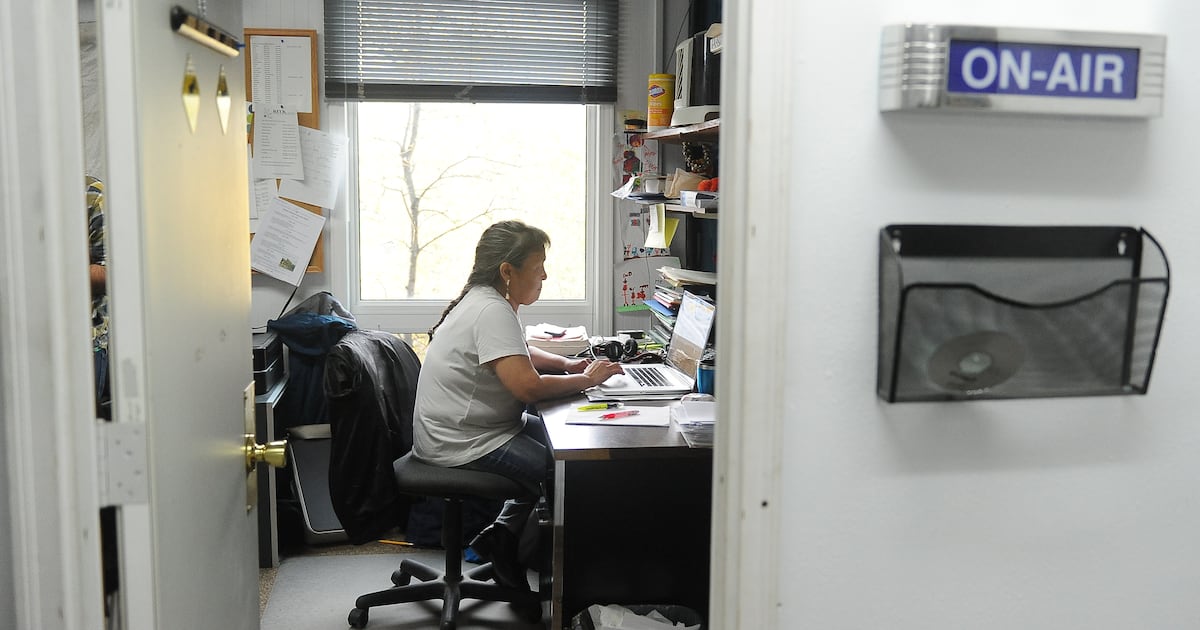
Alaska’s stations received more than $12 million from CPB last year, which can amount to 40% or more of their annual budgets.
NPR, which Trump and his allies have attacked as biased towards liberals, derives roughly 1% of its budget from CPB, though it also collects money from individual stations that run its programs.
Alaska’s public media leaders told me they believe Trump’s proposal is more likely to pass the Republican-controlled U.S. House.
They’re counting on the U.S. Senate — where only a few GOP votes would be needed to sink the plan — to be their firewall.
They describe Republican Sen. Lisa Murkowski as a rock solid ally in preserving the funding. And they expect Republican Sen. Dan Sullivan, a longtime supporter of public media, to come to their defense, too.
But they also say they won’t know for certain until the votes are cast.
“I don’t want to say that I’m fully confident of their votes,” said Tom Abbott, general manager of KFSK in the Southeast Alaska fishing town of Petersburg, which gets some 30% of its budget from CPB.
But, Abbott added: “We’ve had very strong support from both of our U.S. senators, for several years now.”
I was curious to know where Sullivan, Murkowski and Alaska’s sole member of the U.S. House, Republican Nick Begich III, stood on what’s reported to be an impending proposal from Trump to rescind $1.1 billion, or two years of funding, for CPB.
I asked each of their offices Wednesday.
Begich's spokesperson didn't respond by my deadline. Murkowski's spokesman, Joe Plesha, was unequivocal, saying that she is a "fierce advocate for Alaska’s public broadcasting and vehemently opposes this reported rescission.”
“While the administration might be targeting NPR and PBS by rescinding this funding, the real casualty will be local public broadcasting, which is vital for Alaska," Plesha said.
Sullivan's spokesperson, Amanda Coyne, also sent a statement: “While Sen. Sullivan believes that NPR has become overly partisan and has veered far from its mission to include a diversity of voices in its coverage, he understands that Alaska’s public radio stations are essential to our state, especially in rural areas.”
Sullivan has also, in recent days, responded to constituents who have emailed in support of public media funding, saying in a form letter that he "will continue to work with the current administration to stress the importance of public broadcasting in Alaska and nationwide."
Sullivan’s position is particularly interesting because of his politics: Unlike Murkowski, he’s rarely publicly criticized Trump’s policies.
But while Trump’s White House has ripped into public media — saying this month that “the NPR, PBS grift has ripped us off for too long” — Sullivan has long recognized its value, at least as far as the services it provides in rural communities.
In 2020, he accepted a "champion of public broadcasting" award from a coalition of public television stations. He also joined with Murkowski in recommending an Alaskan, Diane Kaplan, for a seat on CPB’s board of directors, and former President Joe Biden appointed her in 2022.
Kaplan is now in the news this week for a lawsuit she and CPB filed against Trump, alleging that the president is illegally attempting to fire her and other board members.
Begich’s vote will be interesting to watch, as well.
The representative, who’s just a few months into his first term, has aligned himself closely with Trump.
But he’s also sent constituents correspondence about public media funding that references the challenge of communication and information sharing in Alaska’s rural communities, saying that public media plays a “crucial role” in residents’ access to news and emergency alerts.
“I support fiscal responsibility and efforts to reduce wasteful government spending,” he said in one recent message. “I also recognize that certain investments provide valuable returns to our communities. I will continue to advocate for policies that enhance infrastructure, improve broadband access, and support communication networks that serve all Alaskans, including those in our rural communities.”
Republicans have targeted federal funding of public media for years. But those efforts have never gained as much traction as they’re getting now.
Abbott, in Petersburg, describes the current threat to federal funding as “by far, the most serious” in his 28 years as general manager. With the proposal from Trump expected, though still not yet introduced, “it puts us all in an uneasy position.”“We’re kind of waiting for the ax to drop,” he said.
This post has been updated to add a statement from U.S. Sen. Lisa Murkowski.
Northern Journal makes its reporting available to news outlets around the state for free; we depend on voluntary reader memberships to pay for our reporting — and our mortgage. Subscribe if you can.


